wimpel69
04-20-2014, 01:02 PM
Sharing on these albums has ended. No more requests and no re-ups, please!
One of the last works Aaron Copland wrote wholly in his characteristically lyrical "American" style (epitomized by
works from the previous decade like Appalachian Spring and the Symphony No.3), The Tender Land
dramatizes a story that is well complemented by the spaciousness and elegant simplicity of Copland's music. Inspired
by photographs in James Agee and Walker Evans' timeless account of Depression-era America, Let Us Now Praise Famous
Men, Copland and librettist Horace Everett fashioned a drama centered around a farm girl on the verge of womanhood.
On the eve of her graduation from high school, Laurie Moss is faced with life-defining choices regarding love, family ties,
and independence. The theme of outsiders -- groundlessly accused of wrongdoing -- invading the peaceful world of rural
America mirrors certain contemporaneous social concerns, not the least of which was the witch hunt for Communists
under the direction of Senator Joseph McCarthy. Copland himself had been called to testify at the notorious
congressional hearings. The Tender Land underwent much revision both before and after its initial production
at the New York City Opera on April 1, 1954. Though the work has never attained the popularity of other American
operas of the same period like Douglas Moore's The Ballad of Baby Doe (1956) or Carlisle Floyd's Susannah
(1955), it enjoyed something of a renaissance in the 1990s with numerous productions and the first-ever
recording of the entire work [This one].
Carlisle Floyd's Susannah achieved success beyond that of almost any other American opera. By the
end of the twentieth century, it had been mounted not only by regional companies, but by major houses. It has found
favor overseas as well, with its simple dramatic and lyric balance, straightforward telling of a compelling tale, and
an immediately accessible score. Countless aspiring sopranos have utilized Susannah's Act I aria "Ain't it a Pretty
Night" as an audition piece. Floyd's choice of subject was strongly influenced by political events of the McCarthy era.
The composer has said that McCarthyism "took all kinds of forms: suspicion, and the idea that accusation was all
that was needed as proof of guilt. It terrified and enraged me." The South that he used for a setting (Tennessee)
was well known to him, Floyd having been raised in small-town South Carolina. To describe Susannah merely as folk
opera, however, is to ignore the assurance and sophistication with which he handles his orchestration. Bigotry, lust,
seduction, and revenge may be elementary subjects, but Floyd manages to allow them their full impact while not
oversimplifying. While he employed folk tunes, hymns, and dances, they are woven into the opera's fabric
quite seamlessly.
Marc Blitzstein (1905-1964) came to national notoriety in 1937 when the Federal Theatre Project canceled
its planned production of his pro-union play The Cradle Will Rock. Producers Orson Welles and John Houseman
led a celebrated march from the previously scheduled theater to a new venue with a bare stage, where the work was
performed in concert, with the composer at the piano. Blitzstein was one of the leading New York Depression-era
leftist artists, adept at Broadway music and classical styles alike.
Lillian Hellman was also a leading leftist author of the time. One of her best-known plays, The Little Foxes,
became the basis for the Blitzstein's own libretto for this opera, Regina. Hellman was surprised when she was
asked to permit its use as an opera and did not take part in its adaptation. The Little Foxes is a searing dramatic
portrayal of a wealthy American family whose members scramble to get more than their fair share of the wealth.
Blitzstein named his opera Regina, after the main character. The protagonists are mainly members of the wealthy
Hubbard family, symbols of greed and corruption. The story is set in Alabama in 1900, allowing Hellman and Blitzstein
to use African Americans and other common folk of the region to represent the proletarian ideal, and the social and
financial system of the Deep South to represent the decaying stages of capitalism.
The work was written to be played on Broadway, although it is a through-composed opera. Blitzstein found it
perfectly natural to tailor his music so as to mix classical structures, harmonies, and procedures with indigenous
American musical forms such as field songs, spirituals, blues, ragtime, minstrel tunes, early Dixieland jazz,
and gospel elements.
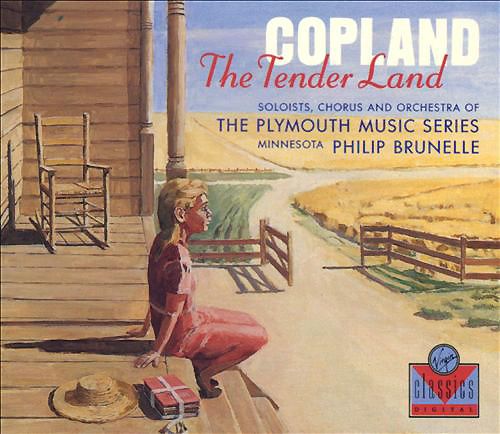
Music Composed by
Aaron Copland
Played by the
Plymouth Music Series, Minnesota
With
Janis Hardy
LeRoy Lehr
Dan Dressen
James Bohn, etc
Conducted by
Philip Brunelle
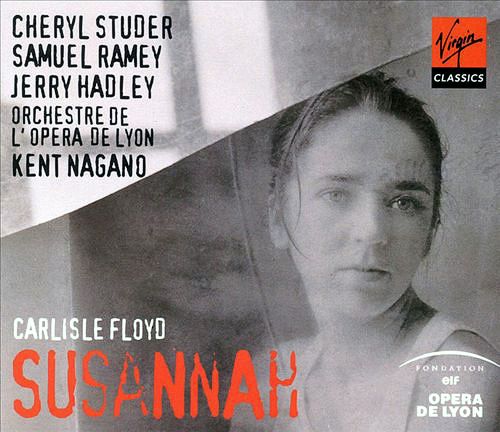
Music Composed by
Carlisle Floyd
Played by the
Orchestre de l'Op�ra de Lyon
With
Cheryl Studer
Jerry Hadley
Samuel Ramey
Kenn Chester
Conducted by
Kent Nagano
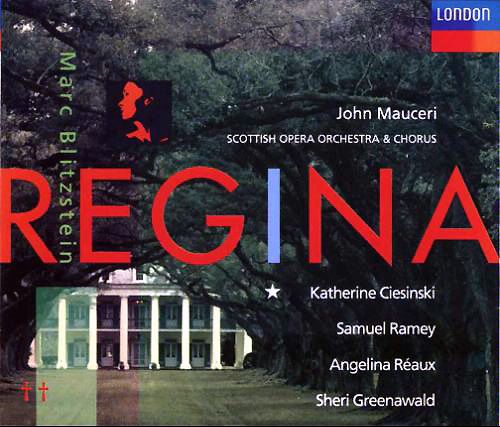
Music Composed by
Marc Blitzstein
Played by the
Scottish Opera Orchestra
With
Katherine Ciesinski
Samuel Ramey
Angelina R�aux
Theresa Merritt
Conducted by
John Mauceri
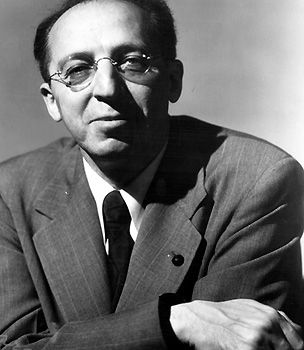
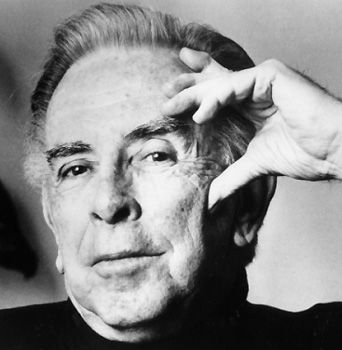
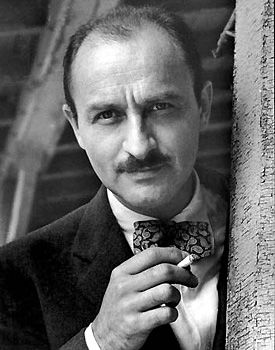
Sharing on these albums has ended. No more requests and no re-ups, please!
One of the last works Aaron Copland wrote wholly in his characteristically lyrical "American" style (epitomized by
works from the previous decade like Appalachian Spring and the Symphony No.3), The Tender Land
dramatizes a story that is well complemented by the spaciousness and elegant simplicity of Copland's music. Inspired
by photographs in James Agee and Walker Evans' timeless account of Depression-era America, Let Us Now Praise Famous
Men, Copland and librettist Horace Everett fashioned a drama centered around a farm girl on the verge of womanhood.
On the eve of her graduation from high school, Laurie Moss is faced with life-defining choices regarding love, family ties,
and independence. The theme of outsiders -- groundlessly accused of wrongdoing -- invading the peaceful world of rural
America mirrors certain contemporaneous social concerns, not the least of which was the witch hunt for Communists
under the direction of Senator Joseph McCarthy. Copland himself had been called to testify at the notorious
congressional hearings. The Tender Land underwent much revision both before and after its initial production
at the New York City Opera on April 1, 1954. Though the work has never attained the popularity of other American
operas of the same period like Douglas Moore's The Ballad of Baby Doe (1956) or Carlisle Floyd's Susannah
(1955), it enjoyed something of a renaissance in the 1990s with numerous productions and the first-ever
recording of the entire work [This one].
Carlisle Floyd's Susannah achieved success beyond that of almost any other American opera. By the
end of the twentieth century, it had been mounted not only by regional companies, but by major houses. It has found
favor overseas as well, with its simple dramatic and lyric balance, straightforward telling of a compelling tale, and
an immediately accessible score. Countless aspiring sopranos have utilized Susannah's Act I aria "Ain't it a Pretty
Night" as an audition piece. Floyd's choice of subject was strongly influenced by political events of the McCarthy era.
The composer has said that McCarthyism "took all kinds of forms: suspicion, and the idea that accusation was all
that was needed as proof of guilt. It terrified and enraged me." The South that he used for a setting (Tennessee)
was well known to him, Floyd having been raised in small-town South Carolina. To describe Susannah merely as folk
opera, however, is to ignore the assurance and sophistication with which he handles his orchestration. Bigotry, lust,
seduction, and revenge may be elementary subjects, but Floyd manages to allow them their full impact while not
oversimplifying. While he employed folk tunes, hymns, and dances, they are woven into the opera's fabric
quite seamlessly.
Marc Blitzstein (1905-1964) came to national notoriety in 1937 when the Federal Theatre Project canceled
its planned production of his pro-union play The Cradle Will Rock. Producers Orson Welles and John Houseman
led a celebrated march from the previously scheduled theater to a new venue with a bare stage, where the work was
performed in concert, with the composer at the piano. Blitzstein was one of the leading New York Depression-era
leftist artists, adept at Broadway music and classical styles alike.
Lillian Hellman was also a leading leftist author of the time. One of her best-known plays, The Little Foxes,
became the basis for the Blitzstein's own libretto for this opera, Regina. Hellman was surprised when she was
asked to permit its use as an opera and did not take part in its adaptation. The Little Foxes is a searing dramatic
portrayal of a wealthy American family whose members scramble to get more than their fair share of the wealth.
Blitzstein named his opera Regina, after the main character. The protagonists are mainly members of the wealthy
Hubbard family, symbols of greed and corruption. The story is set in Alabama in 1900, allowing Hellman and Blitzstein
to use African Americans and other common folk of the region to represent the proletarian ideal, and the social and
financial system of the Deep South to represent the decaying stages of capitalism.
The work was written to be played on Broadway, although it is a through-composed opera. Blitzstein found it
perfectly natural to tailor his music so as to mix classical structures, harmonies, and procedures with indigenous
American musical forms such as field songs, spirituals, blues, ragtime, minstrel tunes, early Dixieland jazz,
and gospel elements.

Music Composed by
Aaron Copland
Played by the
Plymouth Music Series, Minnesota
With
Janis Hardy
LeRoy Lehr
Dan Dressen
James Bohn, etc
Conducted by
Philip Brunelle

Music Composed by
Carlisle Floyd
Played by the
Orchestre de l'Op�ra de Lyon
With
Cheryl Studer
Jerry Hadley
Samuel Ramey
Kenn Chester
Conducted by
Kent Nagano

Music Composed by
Marc Blitzstein
Played by the
Scottish Opera Orchestra
With
Katherine Ciesinski
Samuel Ramey
Angelina R�aux
Theresa Merritt
Conducted by
John Mauceri



Sharing on these albums has ended. No more requests and no re-ups, please!